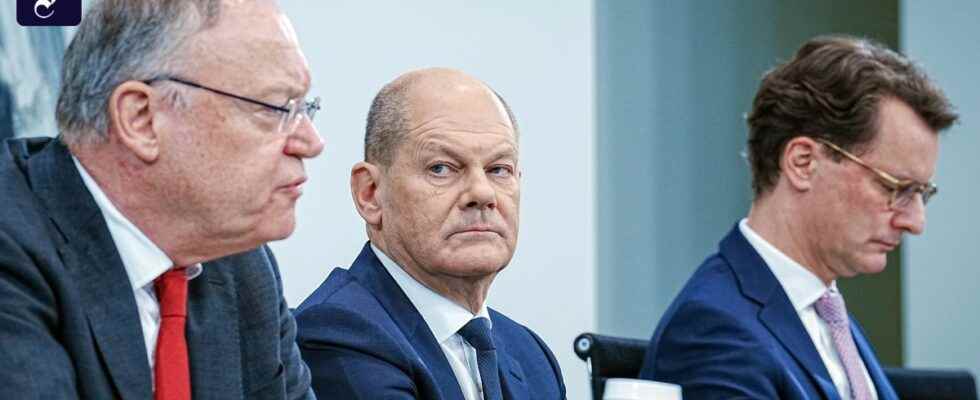DThe citizens can expect the introduction of a so-called Germany ticket in local transport. “The Germany ticket will come now, also very quickly,” said Federal Chancellor Olaf Scholz (SPD) after a meeting of the Prime Ministers’ Conference (MPK) on Thursday evening in Berlin. “We have now removed all the hurdles so that those responsible in the federal states and the transport companies can now do everything to ensure that this progresses quickly and efficiently.”
The Germany ticket for buses and trains in local transport with an introductory price of 49 euros per month should therefore start in the new year. It is intended to tie in with the popular 9-euro ticket from the summer. Scholz did not provide any further information on the content. Most recently there had been a dispute about the financing of the ticket, which was already planned in principle, by the federal and state governments.
Lower Saxony’s Prime Minister Stephan Weil (SPD) said: “Today we are so far that we can say: The financial foundations for this have been laid.” The expectation is now that the relevant laws can be put on track quickly.
The federal government wants to provide refugee accommodation
In addition, according to Scholz, the federal and state governments agreed on the final details of a hardship fund for companies in the economic crisis. It is “a good sign that this can start now,” said Scholz. It should be ensured that the prices for gas, district heating and electricity could fall.
In view of the persistently high number of refugees from Ukraine, the federal government also wants to provide accommodation options, according to the states. The federal states had asked the federal government “to make sure that the Federal Agency for Real Estate Tasks (BImA) also makes space available wherever possible,” said North Rhine-Westphalia’s Prime Minister Hendrik Wüst (CDU) on Thursday after the consultations. That was also promised.
Unusually, the number of refugees remained high this winter, “because the Russian war effort is based precisely on expelling people from Ukraine,” said Wüst. The task now is to do justice to people across all levels of government. “It still applies: Anyone who flees from Putin’s war gets protection from us,” said Wüst, who is currently deputy chairman of the Prime Ministers’ Conference (MPK).
New dispute in elementary damage compulsory insurance
The federal states are currently preparing to take in numerous refugees in the coming weeks and months. In some places, emergency accommodation in tents and gyms could also be set up again.
However, there is a new dispute between the federal and state governments regarding the introduction of compulsory insurance against natural hazards. In the summer, the federal and state governments agreed on the introduction of such an insurance as a consequence of the flood disaster in 2021, according to Prime Minister Wüst. Now, however, Minister of Justice Marco Buschmann (FDP) has rejected compulsory insurance in the federal-state round of talks, triggering “astonishment”. The topic will now be examined again and discussed again next year.
